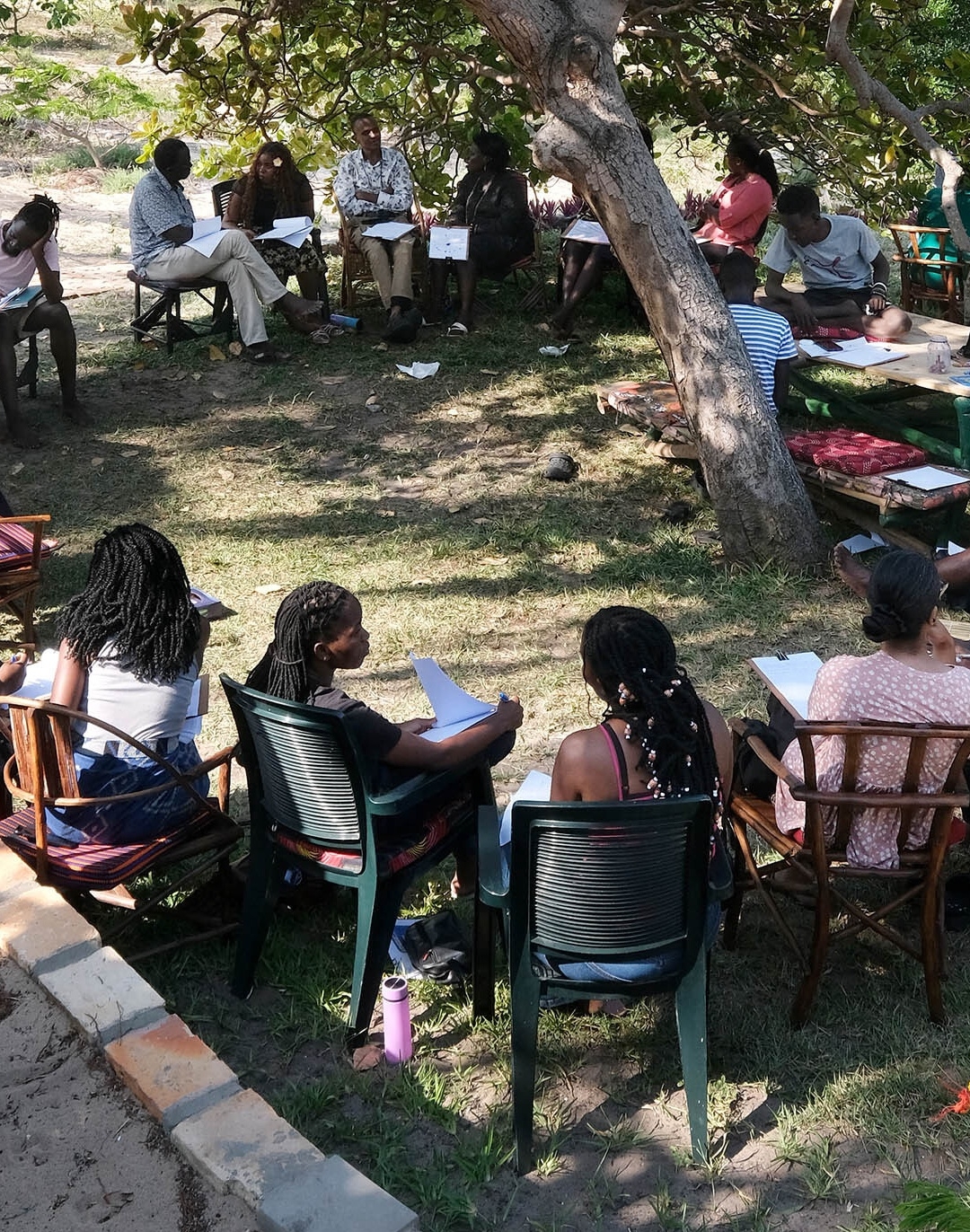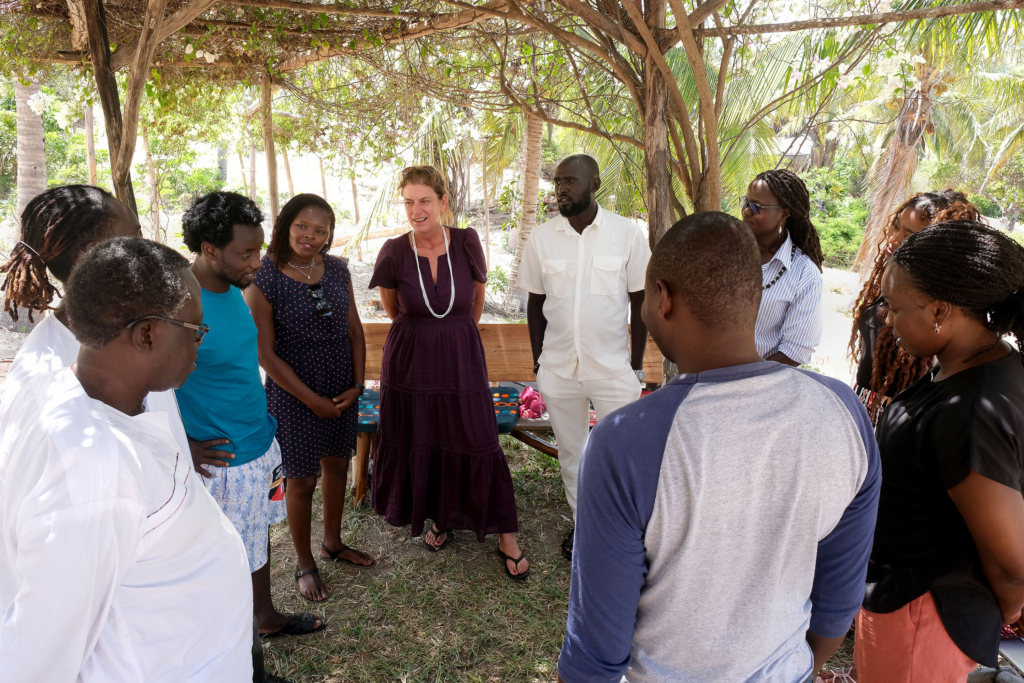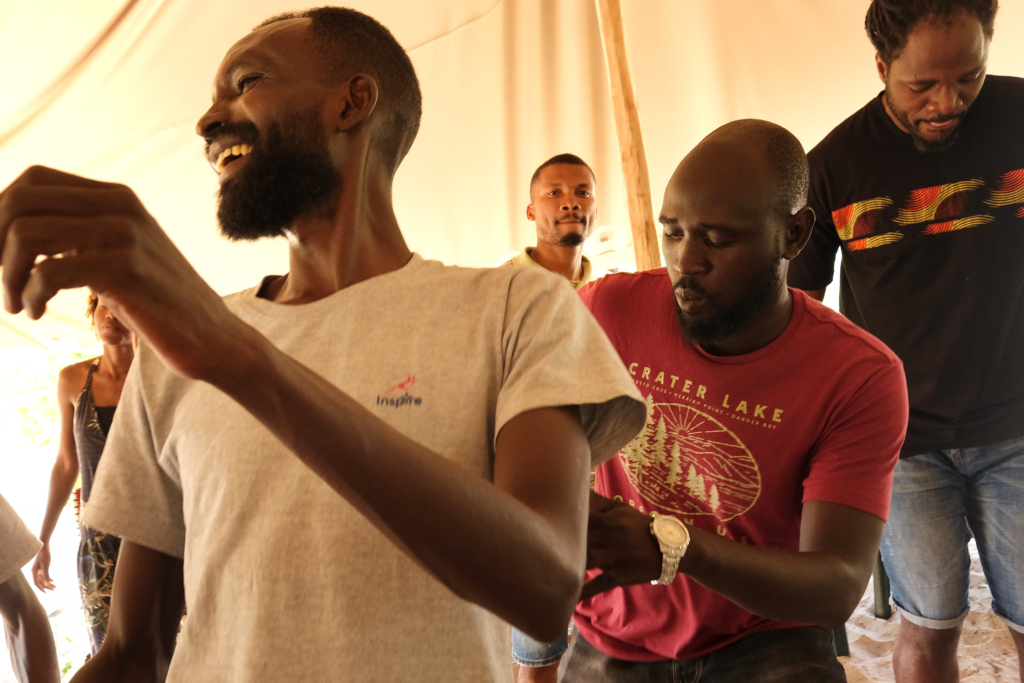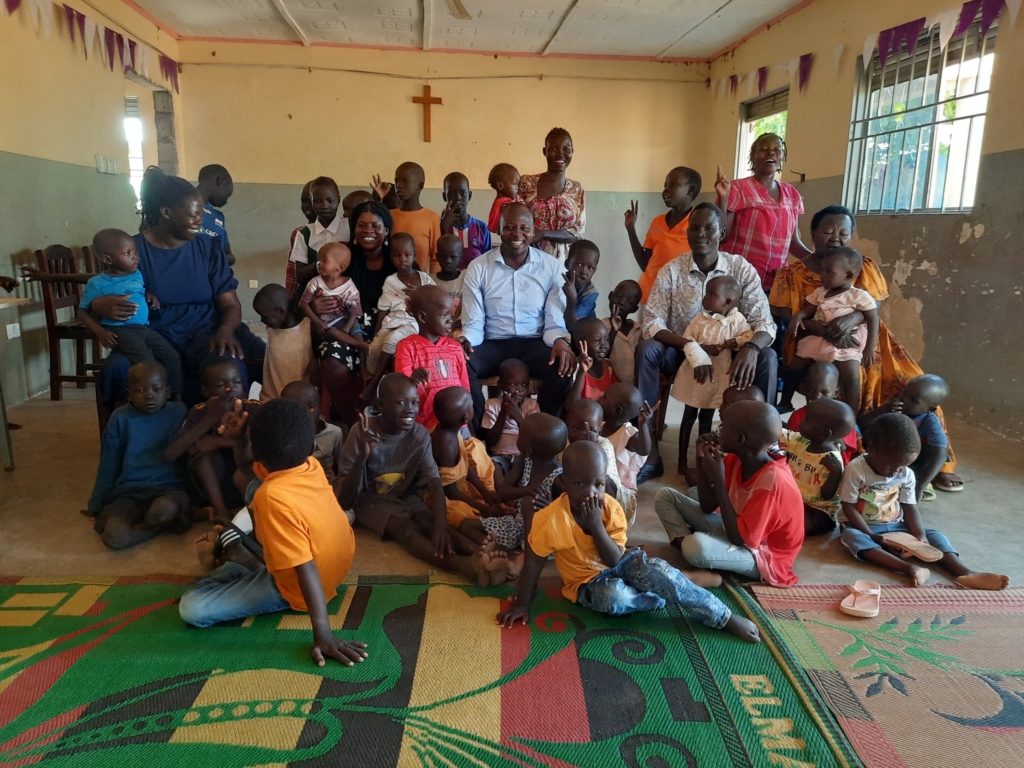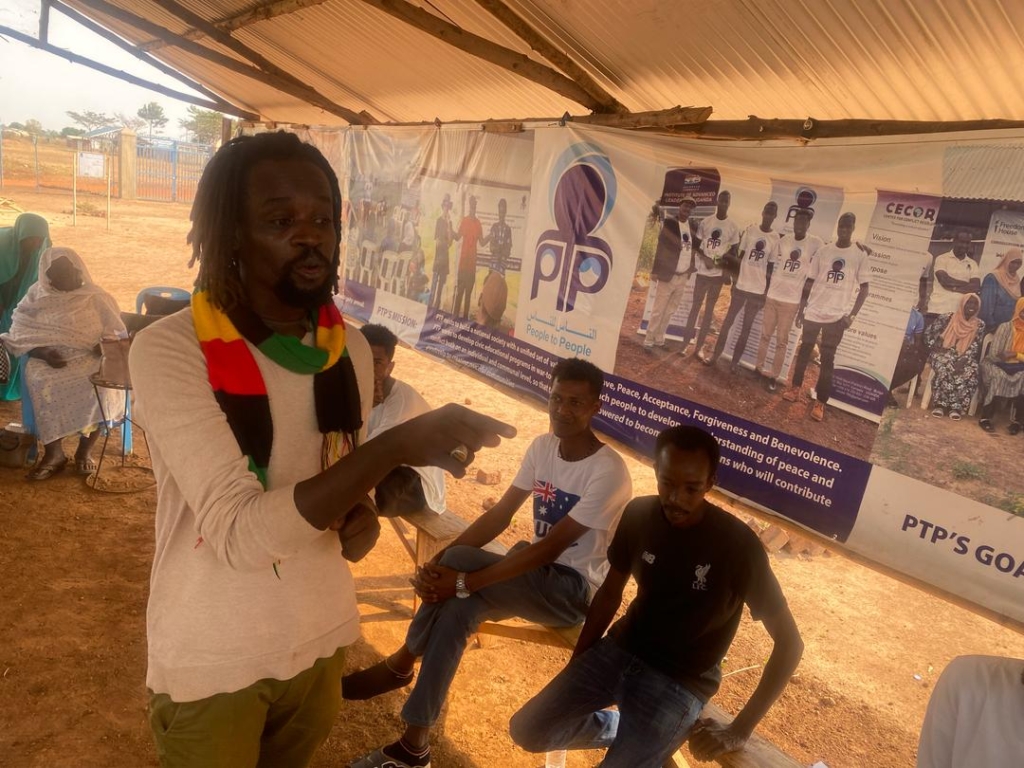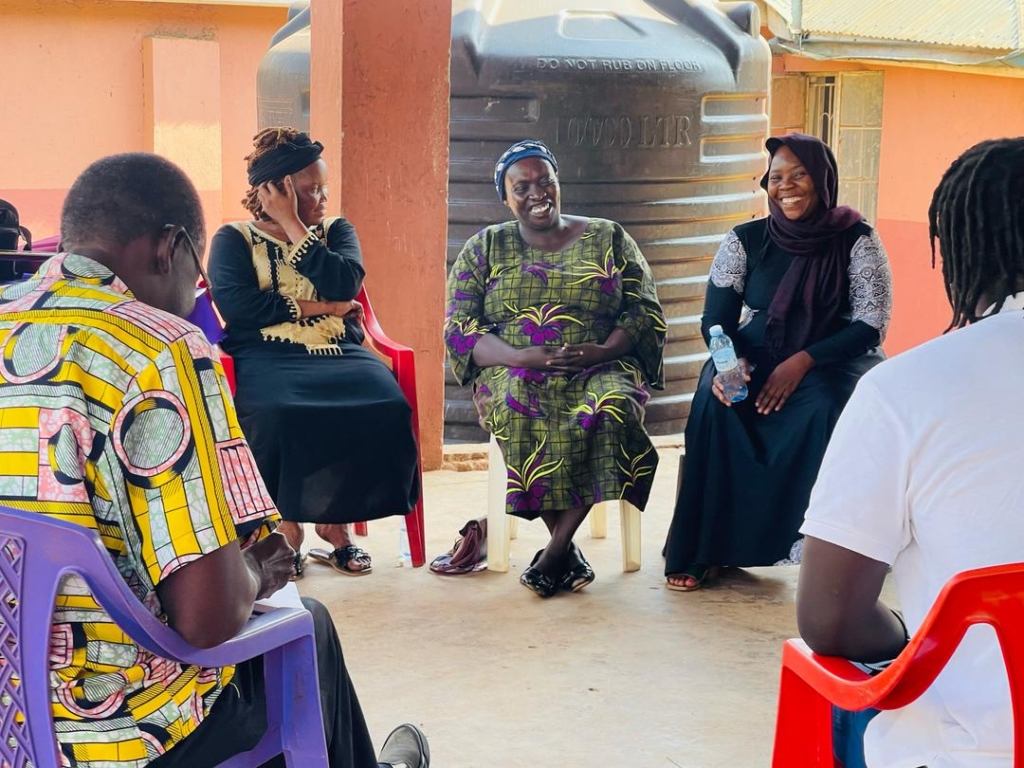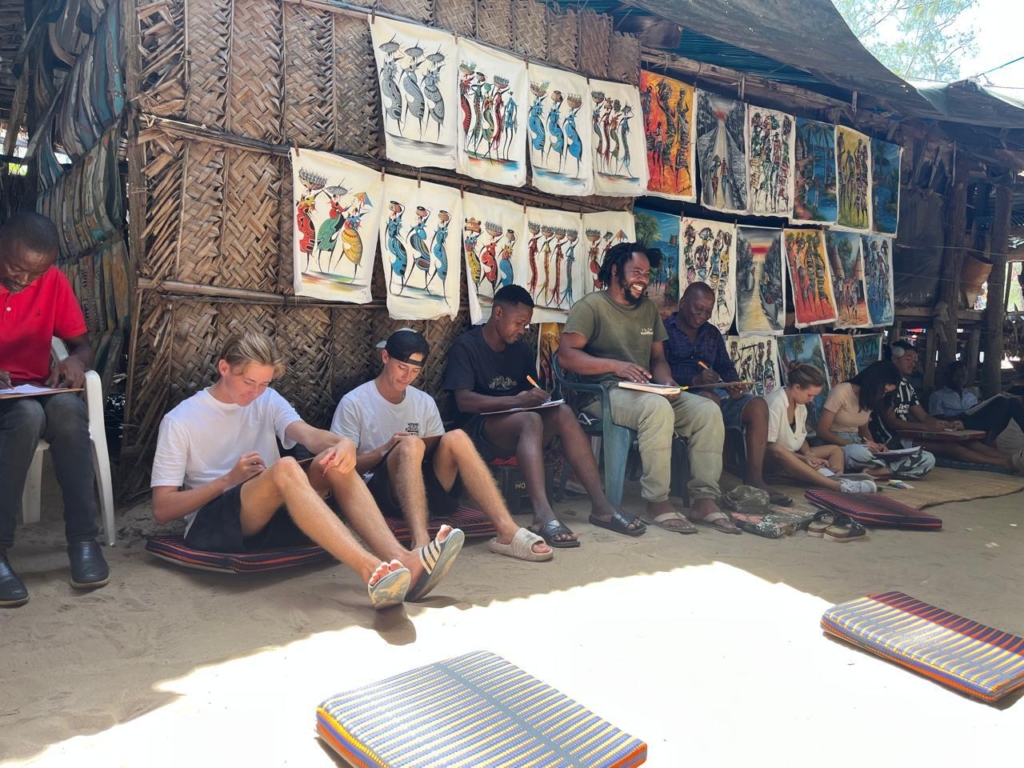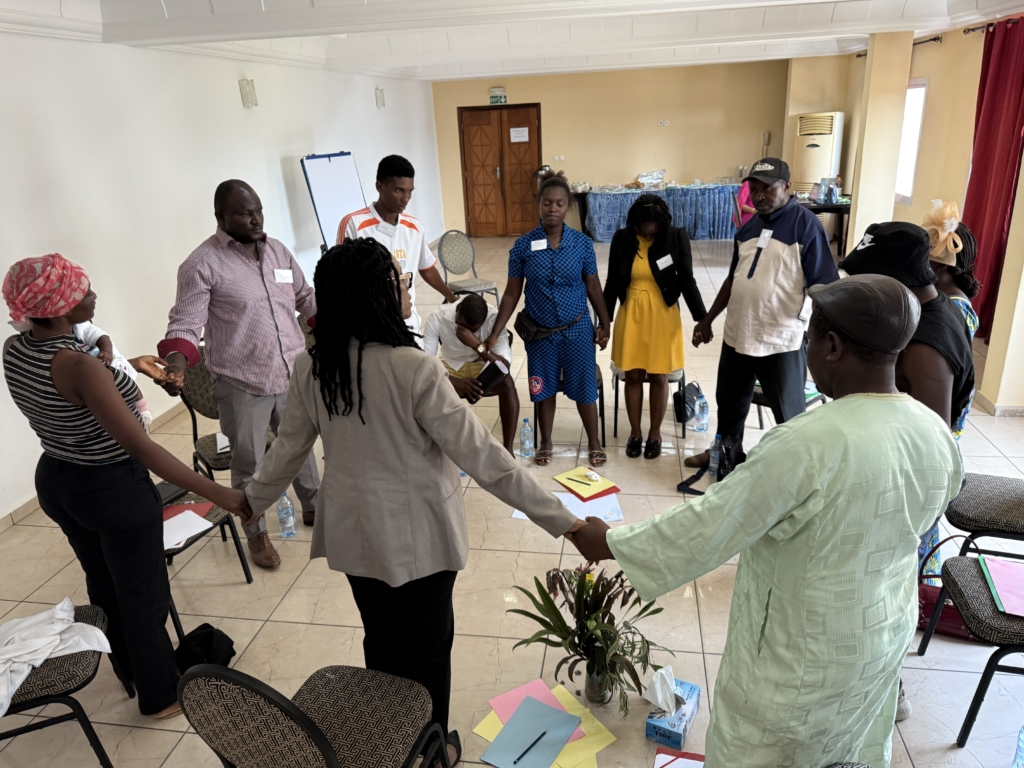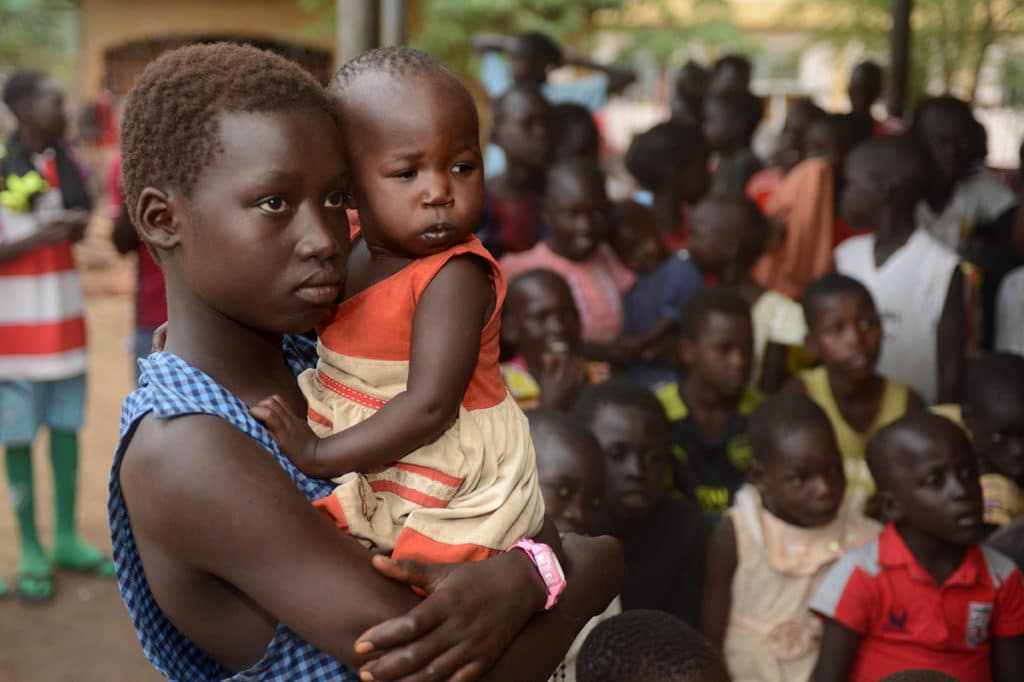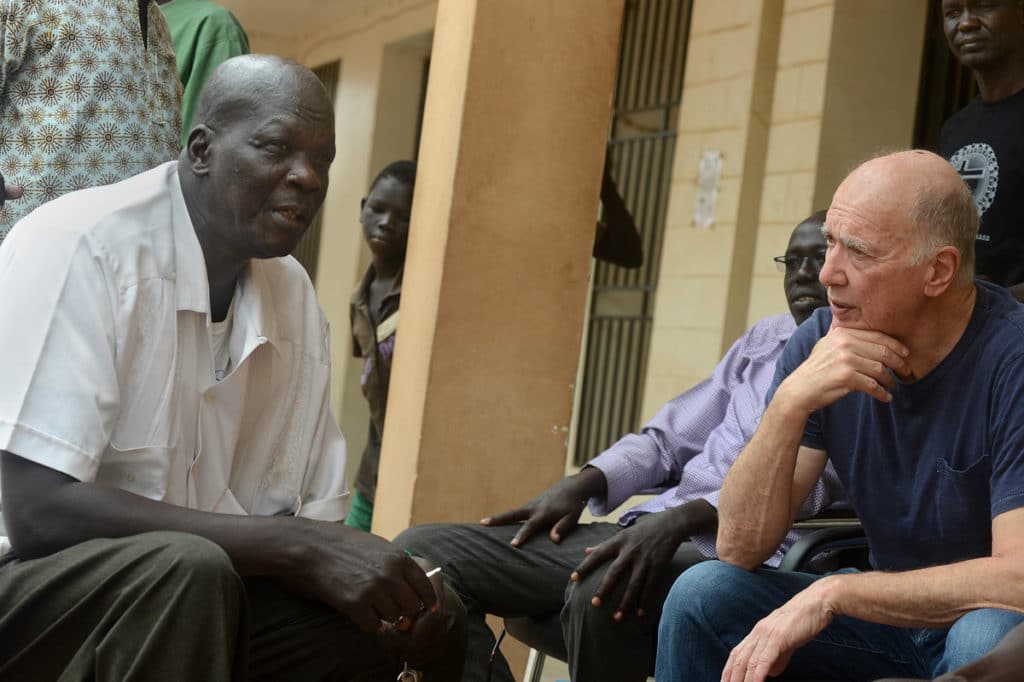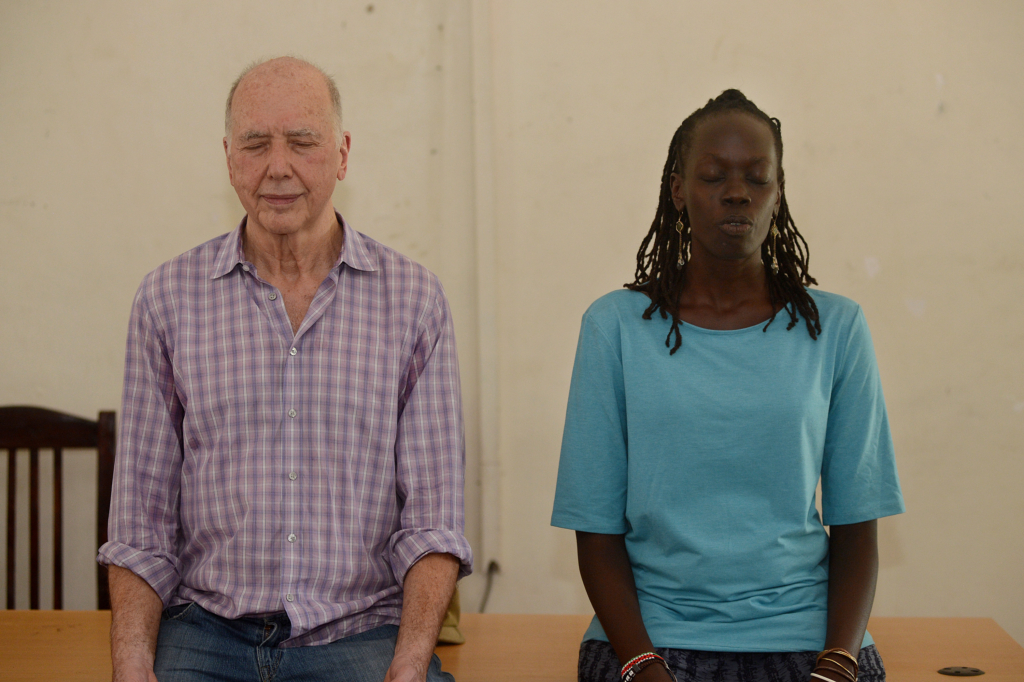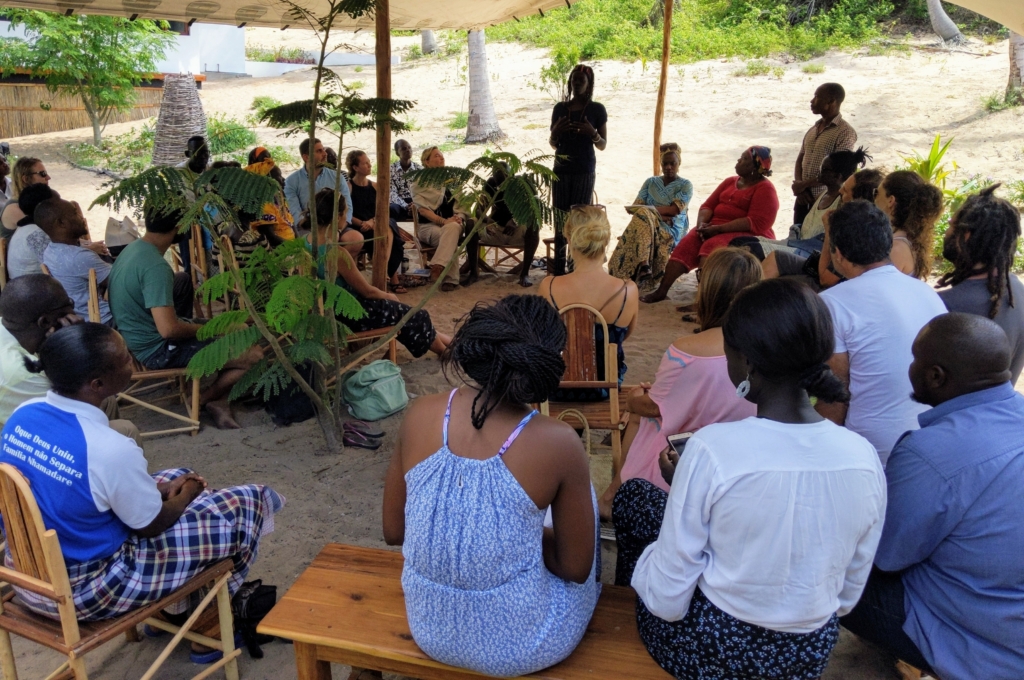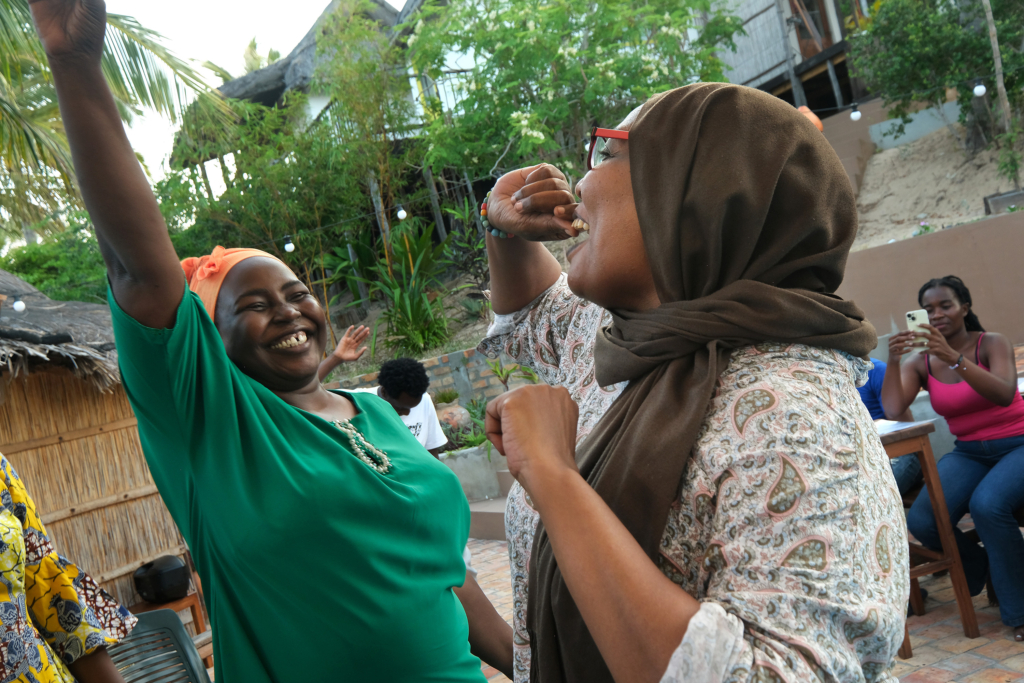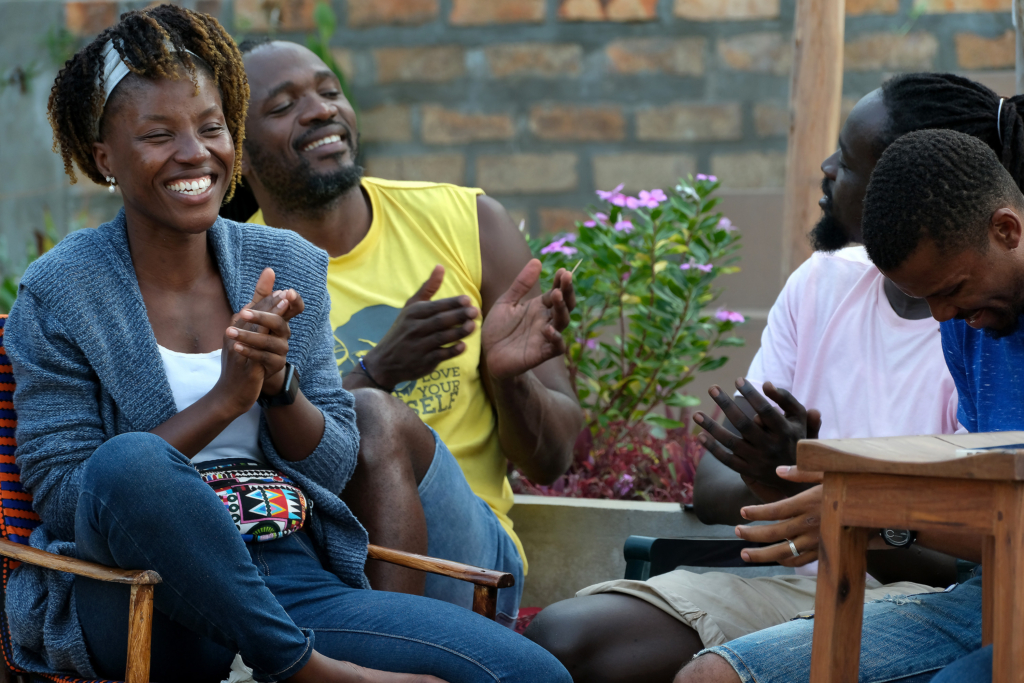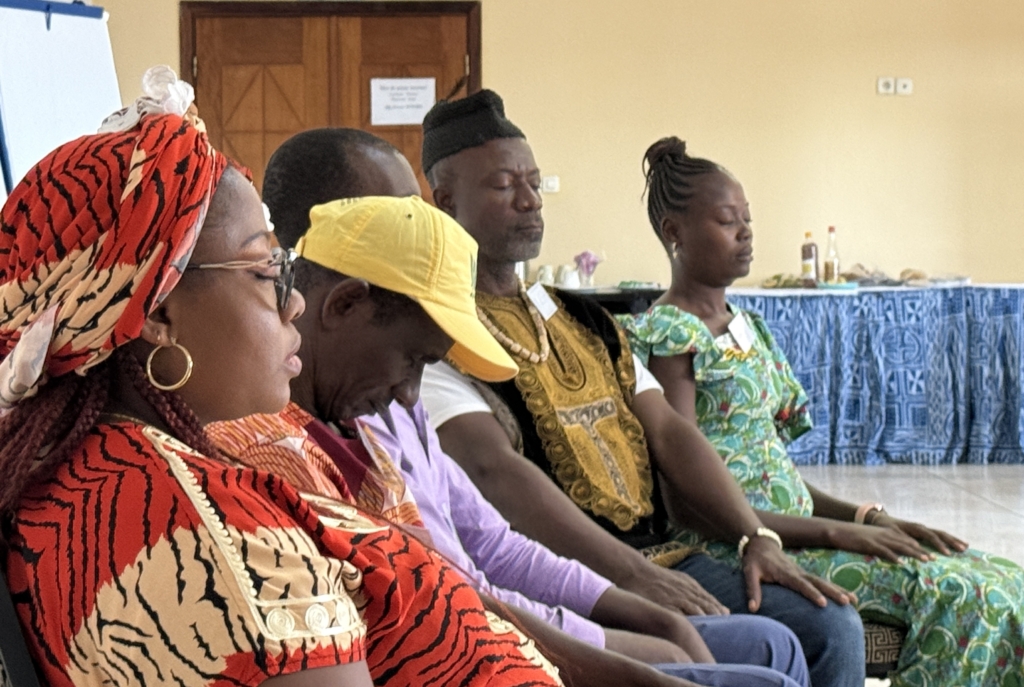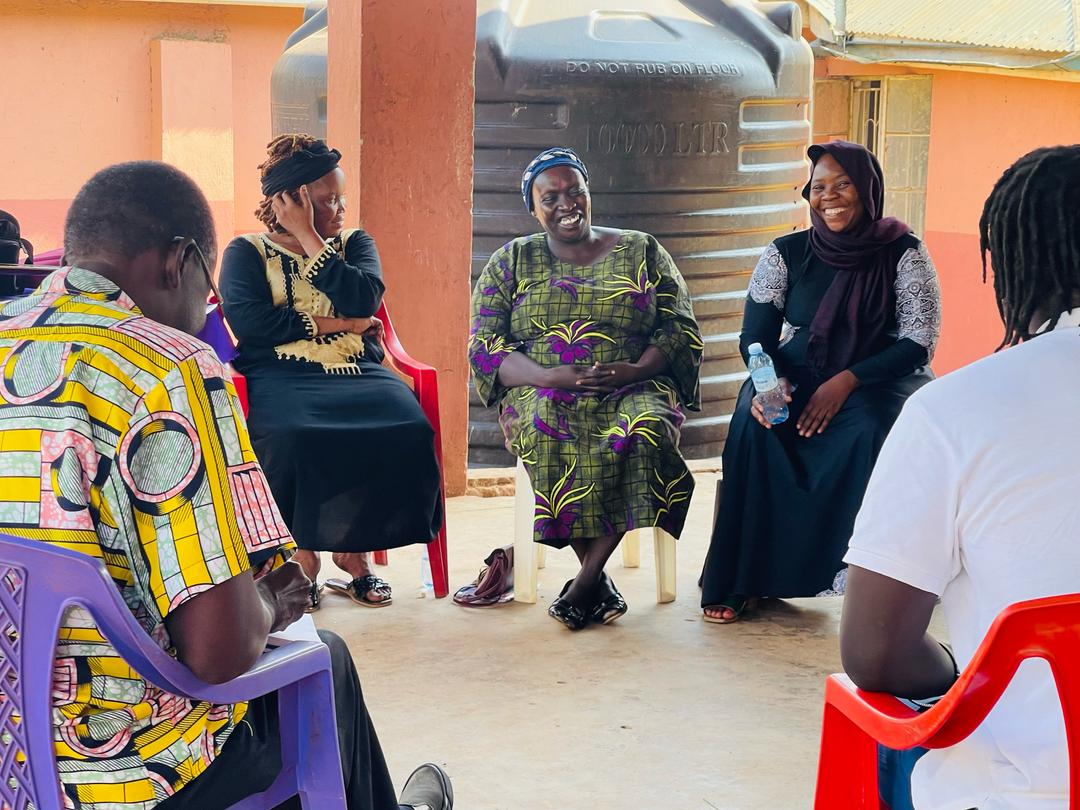Our Work
Program Update
In November 2024 and in partnership with the Roots of South Sudan and Hwinzo Retreat, Faculty member Anyieth D’Awol was joined by our Clinical Director Lynda Richtsmeier Cyr, Associate Director for International Programs Andrew Leone, and Senior Faculty Jane Reilly to hold back-to-back Professional Training and Advanced Training Programs in Tofo, Mozambique.
The 26 participants included human rights advocates, community organizers, healthcare workers, journalists, artists, and educators from Mozambique, Kenya, Sudan, South Sudan, and Uganda. Many had been displaced or directly impacted by violence in the region. Despite these challenges, they made the journey to Tofo where they experienced a safe, supportive environment and enjoyed the town’s natural beauty.
Over two weeks of immersive learning, participants practiced techniques like soft belly breathing, expressive drawing, guided imagery, and mindful movement. In the safety of the groups, they shared their stories, supported one another, and began the process of personal and collective healing.
